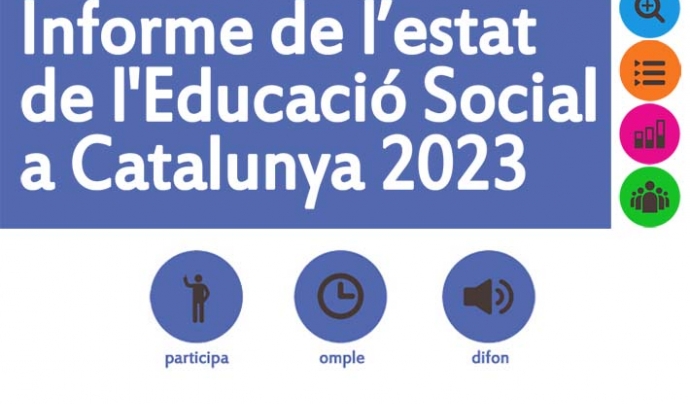
Nota premsa: 15a Trobada de la Dona Trabucaire

Nota premsa: 15a Trobada de la Dona Trabucaire
Benvolgudes Colles,
Ahir, 10 de març de 2024, la 15a Trobada de la Dona Trabucaire va omplir de vida i emoció el nucli del poble de Torrelles de Llobregat i el Parc de la Catalunya a Miniatura. Amb la participació de 29 colles trabucaires, aquest esdeveniment es va convertir en una experiència inoblidable, plena de simbolisme.
Imaginem aquesta trobada com una caixa de formatges exquisida, on cada part representa un àmbit d’aquesta espectacular trobada:
1. Món Trabucaire: Un formatge dedicat a la mateixa essència de la Trobada, on l’art de galejar es va convertir en protagonista, mostrant el llegat històric d’aquesta tradició.
2. Cultural (l’Ateneu): Un altre formatge ens transporta a un món de la cultura i la tradició popular, on les expressions artístiques van donar vida a la identitat cultural de Torrelles de Llobregat i on la Coordinadora va aportar el seu ball trabucaire amb 8 parelles de balladors.
3. Ubicació al Parc de la Catalunya a Miniatura: Aquest formatge ens porta a reconèixer la magnífica elecció del lloc, que va proporcionar l’escenari perfecte per a aquesta celebració, envoltada de bellesa i encant… i on vam tenir un bon episodi de la beneïda i esperada pluja.
4. Culinària: En aquest formatge, vam assaborir d’un esmorzar i un dinar excel·lents i servits a taula.
5. Inclusió: En aquest formatge, celebrem la participació i col·laboració de diferents entitats del poble, creant un ambient de diversitat, respecte i unitat. El nostre agraïment a l’Ajuntament de Torrelles, a l’Ateneu, a les diferents entitats que van participar, a Catalunya en Miniatura i a l’empresa de càtering
6. Rumba trabucaire: En Ricard Carcelén jr, ens va regalar a tothom la rumba trabucaire, sent autor i cantant de la mateixa. Ja tenim himne trabucaire, ball trabucaire i ara rumbeta trabucaire que fa que et doni ganes de començar a ballar-la!
7. Agraïment: Un altre formatge s’omple de gratitud cap a tots els implicats en l’organització i el desenvolupament d’aquest esdeveniment únic, on l’esforç i la dedicació es tradueixen en moments inoblidables.
8. Bandera dia de la Dona: Un formatge exquisit pel regal que la Colla dels Carrasquets i Carrasquetes va tenir per la Federació Coordinadora de Trabucaires de Catalunya, la bandera del dia de la Dona, on any rere any ens acompanyarà en un dia tan assenyalat i on les colles amfitriones se l’aniran passant. Aquesta bandera reflecteix l’esperit generós i unitari de la colla amfitriona.
9. Germandat: L’essència de la Trobada es concentra en aquest formatge, on es va compartir companyerisme i el bon ambient es van manifestar entre tots els assistents, creant llaços que perduraran en el temps.
10. Dona amb Vàlua: Finalment, però no menys important, un formatge especial es reserva per expressar un profund agraïment de totes les colles a Ana Guillem Sánchez, la Dona amb Vàlua 2024, una figura que encarna l’essència i el valor de la dona en aquesta trobada tan simbòlica.
En resum, la 15a Trobada de la Dona Trabucaire a Torrelles de Llobregat va ser molt més que un simple esdeveniment; va ser un viatge a través de la cultura i la tradició, deixant una empremta inesborrable al cor de tots els que van tenir el privilegi de participar en aquesta celebració única.
Esperem amb il·lusió la següent edició a Alella d’aquesta emblemàtica Trobada.
Salut i Pólvora!
Som com som, som trabucaires!
Sí, soc dona i soc trabucaire
Amb orgull, Dona, trabucaire i resilient!

Les farmàcies reparteixen productes menstruals sostenibles gratuïts
Les farmàcies reparteixen productes menstruals sostenibles gratuïts


Les farmàcies reparteixen productes menstruals sostenibles gratuïts
Des del dilluns 4 de març les dones i les persones que menstruen poden triar entre copes, calces menstruals i compreses de roba a través d’un codi QR a l’aplicació La Meva Salut.
La iniciativa 'La meva regla, les meves regles' forma part del Pla integral d’equitat menstrual i climateri 2023-2025, impulsat pel Departament d’Igualtat i Feminismes del govern, per garantir el dret a l’equitat menstrual.
Més de 3.000 farmàcies de Catalunya ja estan distribuint productes menstruals reutilitzables de manera gratuïta a dones, persones no binàries i homes trans que menstruen d’entre deu i seixanta anys.
Es pot escollir un dels següents tres productes: una copa menstrual, unes calces menstruals o un paquet de dues compreses de tela reutilitzables. Per recollir-lo cal accedir a l’aplicació La Meva Salut, obtenir el codi QR corresponent i dirigir-se a una farmàcia, on les especialistes ajuden a triar el producte més adient per a cadascú.
“És un pas important per tal de normalitzar l'accés a productes menstruals més ecològics, respectuosos amb el cos i que, a més, permeten un estalvi econòmic perquè duren molts anys”, ha valorat Marta Beltran, directora de projectes de Rezero, entitat referent en la prevenció i eliminació de residus. “Les persones menstruants poden arribar a estalviar fins a 4.000 € en productes menstruals al llarg del seu període actiu de menstruació”, ha afegit.
El 44% de les dones no hem pogut triar el producte menstrual que volíem perquè era massa car
— Igualtat i Feminismes (@igualtatcat) March 6, 2024
La pobresa menstrual és una realitat i amb el projecte La meva regla, #LesMevesRegles estem treballant per combatre-la pic.twitter.com/wZtwUECZmH
Al llarg dels primers tres dies de funcionament de la campanya, s’han descarregat més de 275.000 codis QR i 110.000 dones ja han demanat el seu producte menstrual sostenible i gratuït. Fins ara, el producte més sol·licitat han estat les calces, seguides de la copa i per últim, les compreses, segons dades del departament.
No obstant això, “el subministrament de productes de gestió menstrual reutilitzables sembla haver afavorit a grans empreses que han sabut adaptar-se amb rapidesa a aquesta demanda, deixant de banda les artesanes de compreses i calces menstruals que han dedicat anys a confeccionar productes còmodes, bonics, sostenibles ecològicament i a preu just”, ha opinat Carolina Ackermann, presidenta de l'Asociación de Cultura Menstrual, La vida en rojo.
Aquesta acció té tres objectius principals: educar en la salut menstrual per tal d’eliminar estigmes i tabús, reduir l’impacte mediambiental produït pels tampons i compreses d’un sol ús i abaratir els costos que suposa tenir la menstruació. La mesura durarà almenys un any al llarg del qual es podrà recollir un producte per persona.

El CEESC obre l'enquesta sobre l’Estat de l’Educació Social a Catalunya 2023
El CEESC obre l'enquesta sobre l’Estat de l’Educació Social a Catalunya 2023

El CEESC obre l'enquesta sobre l’Estat de l’Educació Social a Catalunya 2023
El CEESC posa en marxa la quarta edició de l’InformeES que té l’objectiu d’actualitzar la lectura de la realitat de la professió a Catalunya i de dibuixar l’evolució de la professió a través d’uns indicadors comparables.
Des del Col·legi d'Educadores i Educadors Socials de Catalunya (CEESC) fan una crida al conjunt de professionals de l'educació social per participar en la recollida de dades que conformaran la que és ja la quarta edició de l'InformeES, que té com a objectiu actualitzar la lectura de la realitat de la professió.
El CEESC vol posar especial atenció a la situació actual de les persones professionals de l'educació social analitzant les dades que s'obtindran sobre l'exercici de la professió al llarg del 2023 i que serviran per saber la realitat professional, comparant-les amb les anteriors tres edicions, i per obtenir informació per continuar treballant en la promoció del reconeixement social i professional de l'educació social amb les diferents administracions, entitats del tercer sector, sindicats i d'altres actors socials.
En aquesta ocasió, també s'amplia la bateria de preguntes pel que fa a temes com ara la periodicitat amb la qual es fa l'avaluació de riscos socials i psicosocials; com es tracta l'assetjament, la violència o la discriminació al lloc de feina; si es fa supervisió d'equips; com es té en compte el Codi deontològic en el desenvolupament de la professió, o la qualitat de les ofertes de treball.
En marxa la recollida de dades per al #InformeES 2023!
— ceesc_cat (@ceesc_cat) March 11, 2024
Educares i educadors socials, la vostra participació és crucial per captar la realitat de la nostra professió i la seva evolució.
Omple el qüestionari fins al 7 d'abril
Comparteix-lo https://t.co/uV4Eedywk6 pic.twitter.com/VdjNjN5c6x
Aquesta enquesta és anònima i confidencial i, per tant, no es recolliran ni publicaran dades personals. La informació recollida serà tractada única i exclusivament per a les finalitats descrites. La data límit per a contestar l'enquesta és el 7 d'abril de 2024, i es pot fer mitjançant aquest formulari.
DISSABTE 9/3 CANCEL·LADA SORTIDA D'OBSERVACIÓ A PUJALT
DISSABTE 9/3 CANCEL·LADA SORTIDA D´OBSERVACIÓ A PUJALT
Us informem que degut a les condicions meteorològiques adverses, la sortida d´observació a Pujalt ha estat CANCEL·LADA.
8-M: Volem més ornitòlogues
.png) Avui és el Dia Internacional de la Dona i des de l'ICO volem donar visibilitat a les dones científiques i ornitòlogues. Per això en les darreres setmanes hem emès un cicle de xerrades liderades per dones on ens han explicat les feines que fan i on també hem reflexionat què suposa ser dona en el món ornitològic.
Avui és el Dia Internacional de la Dona i des de l'ICO volem donar visibilitat a les dones científiques i ornitòlogues. Per això en les darreres setmanes hem emès un cicle de xerrades liderades per dones on ens han explicat les feines que fan i on també hem reflexionat què suposa ser dona en el món ornitològic.
Podeu recuperar totes les xerrades al nostre canal de YouTube:
ICOnferència 3 - Sara Fraixedas: "Les femelles també canten. El paper de la dona ornitòloga en el món científic".
ICOnferència 4 - Nat Argullós: "Aliades i veïnes"
ICOnferència 5 - Anna Motis: "Dels estornells als llibres"
ICOnferència 6 - Helena Navalpotro: "Guia ràpida de l’ús d’emissors pel seguiment d’ocells esteparis".
Tot i això, a l'ICO les diferències de participació entre homes i dones continuen sent bastant grans, només tenim un 27% de sòcies, un 17% de dones participants en el SOCC i un 13% d'anelladores. Què falla? Hi ha alguna cosa que estem fent malament? Des de l'ICO volem conèixer la vostra opinió i per això llancem aquesta enquesta. Esperem que amb les respostes de totes i tots puguem adoptar mesures per revertir aquesta situació. Gràcies per participar!
Enquesta
https://forms.office.com/Pages/ResponsePage.aspx?id=MXGw07SD2UmdJrG1UwIx1O7xsObpqPBKiLFMuW88c-lUMkY2VEk2UFgzTFBXQ1BFRVhNU1hOSjdTNS4u






